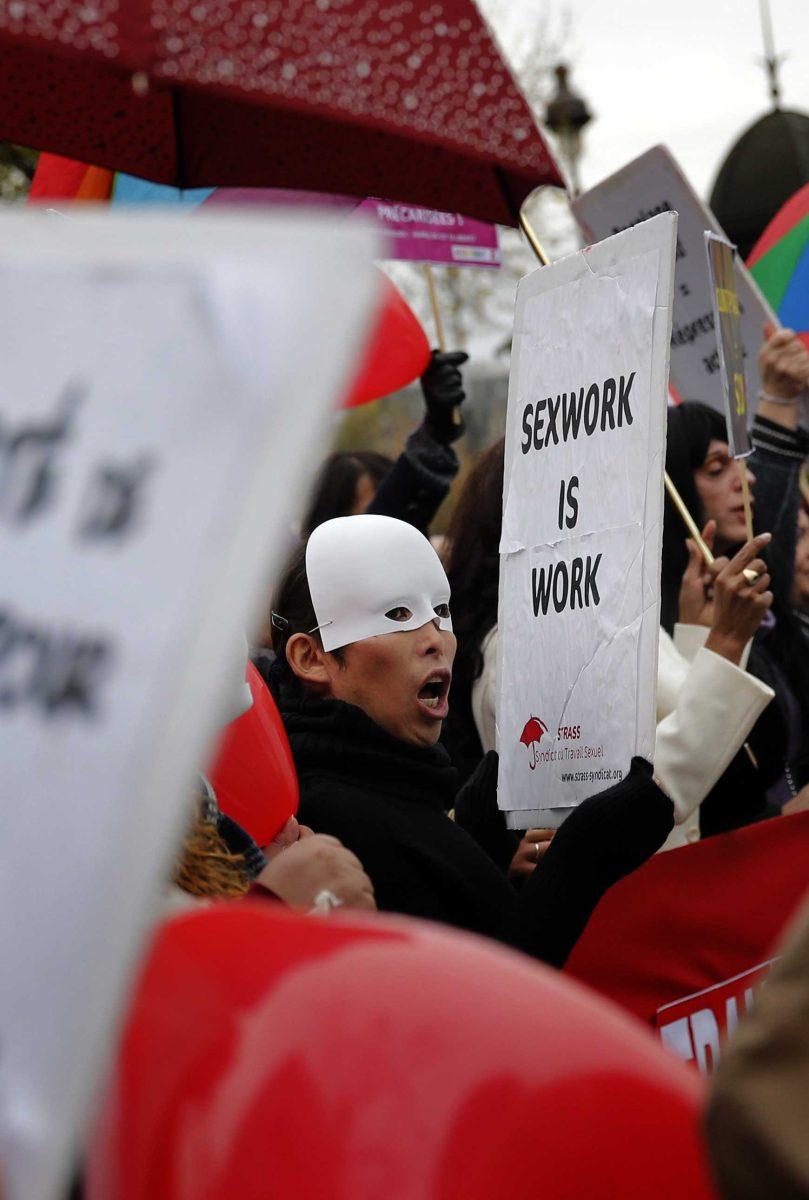Following a two-month long undercover investigation, state and local authorities arrested six women last Monday after raids on two West Baton Rouge massage parlors on the charges of prostitution at the businesses and said they discovered evidence of human trafficking in the process, according to WBRZ.
Sex trafficking — a particular form of human trafficking — is a huge problem internationally and in our own city. It involves exploitation, which comes in many forms, such as forcing victims into prostitution, compelling victims to commit sex acts for the purpose of creating pornography and misleading victims into debt bondage.
Some human rights activists seek to cut down on this crime by legalizing prostitution. This is not the answer.
Legalizing it only increases the demand for it by deeming promiscuous behavior socially acceptable, simply continuing the cycle of sexual abuse in the sex industry.
Selling sex is a dangerous, harmful profession and shouldn’t be promoted by legislation.
Victims of trafficking or not, prostitutes suffer from violence and abuse and may face rape, beatings or other forms of torture.
According to a U.S. study of nearly 2000 prostitutes over a span of 30 years, mortality rates were nearly 200 times those of other people with similar demographics.
While some say selling sex is empowering for women, for many it’s the exact opposite.
Pimps and sex traffickers frequently target vulnerable people with histories of abuse. Nearly all involved in the sex industry have suffered from abuse and violence.
According to a report on human trafficking and prostitution funded by the U.S. Department of Justice, 88 percent of female sex workers — trafficked or not — want to exit the industry, but numerous factors make it difficult, some of which include lack of employment skills, dependence on pimp, poor health, addiction, shame and lack of ID.
The same report revealed that nearly 80 percent of prostitutes interviewed felt they had been coerced or forced into the industry. This doesn’t sound like empowerment to me.
Case studies show legalization actually fuels trafficking and abuse.
While regulations are intended to combat trafficking and abuse, in reality, legalizing prostitution empowers pimps, traffickers and the sex industry, according to an article published by the Journal Of Trauma Practice.
Based on studies conducted in locations where the sex trade has been legalized, including Australia, Germany and the Netherlands, the number of sex trafficking victims significantly increased after legalization, and violence is still prevalent in the industry.
It’s no surprise legalizing prostitution increases demand for prostitutes because doing so sends the message that it is socially acceptable behavior. Men who may have had qualms before sex was legal may feel justified in purchasing sex now.
Such legislation also promotes a culture of infidelity and promiscuity, which is harmful to families and children. Clearly the sex industry is harmful not only to those directly involved but to everyone and should not be promoted by legislation.
There would be no demand for sex workers if not for the people willing to purchase sex. The most successful route to achieving freedom for trafficking and abuse victims is going after the demand — sex customers — not the supply.
Most prostitution laws criminalize the supply — prostitutes, including those trapped in the industry by force or need and who find little chance of escape and rescue. This discourages a friendly relationship between recovery teams and abused prostitutes.
Criminalizing customers of prostitutes is the most successful route to freedom for victims of trafficking and abuse.
After prostitution had previously been legal and had become a problem, Sweden adopted a law criminalizing Johns.
Shortly after adopting the legislation, supply and demand of trafficking and prostitution significantly decreased, according to studies by multiple research groups.
According to an academic journal article published by Reproductive Health Matters, the greatest successes in eliminating trafficking resulted not from legalizing prostitution, but from strict enforcement of regulations.
To promote justice, freedom and equality, the selling of bodies cannot be tolerated.
Christine Guttery is a 20-year-old English junior from Baton Rouge.
Head to Head: Prostitution should not be legalized because it promotes inequality and human trafficking
December 4, 2013
A French sex worker demonstrates outside the National Assembly in Paris, Friday, Nov. 29, 2013. Protestors gather against a government plan to penalize clients caught in the act of soliciting a prostitute. (AP Photo/Christophe Ena)








